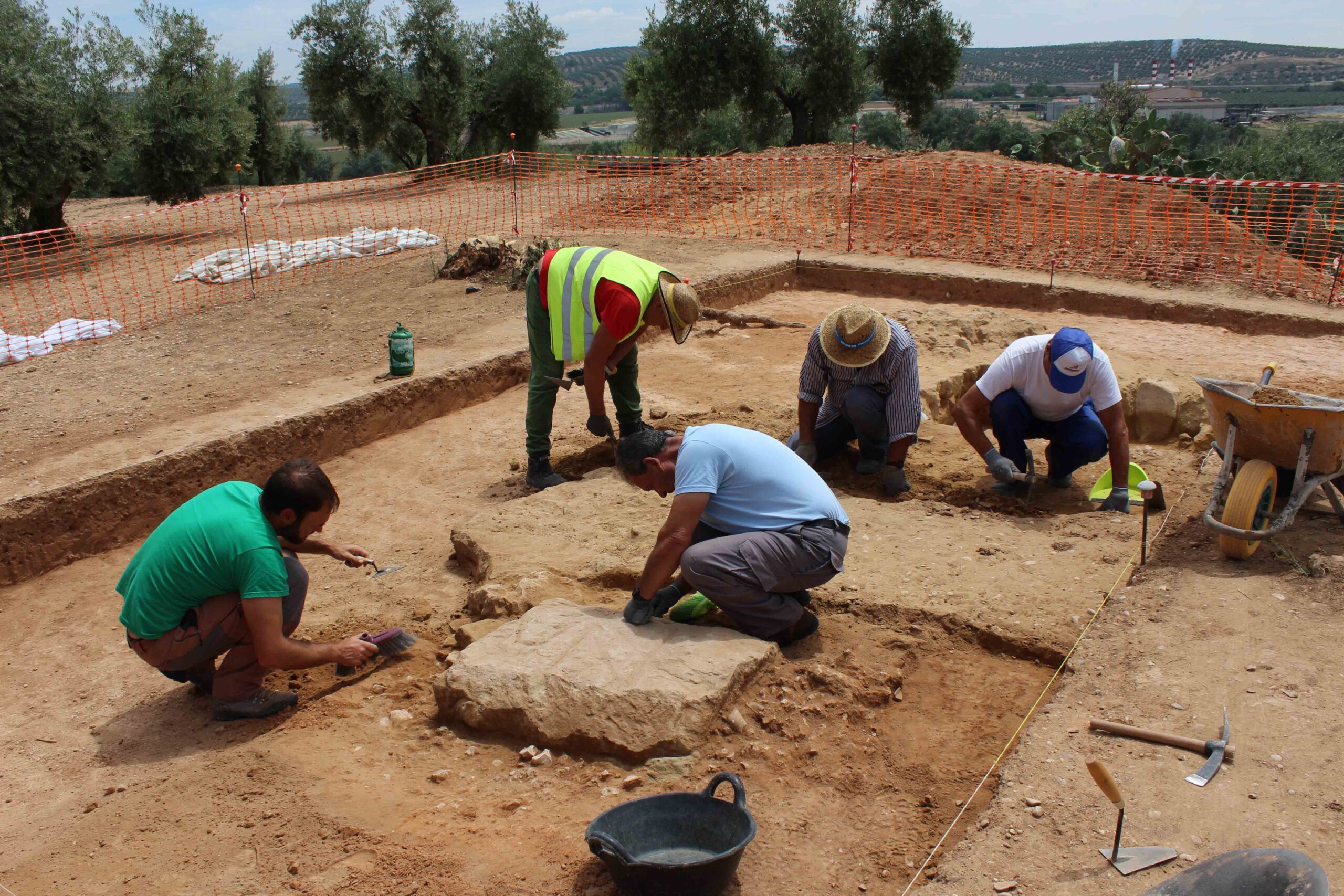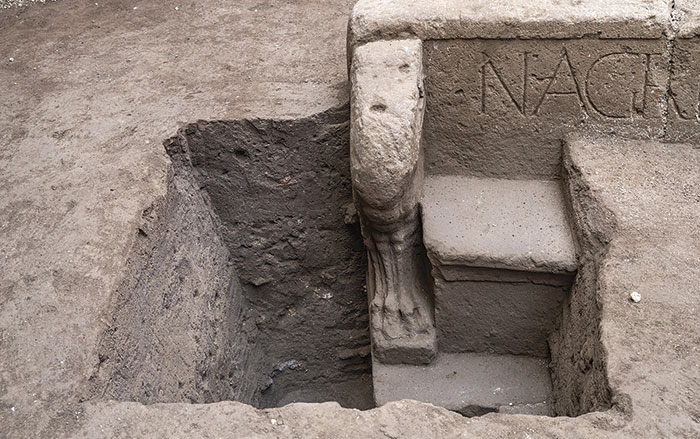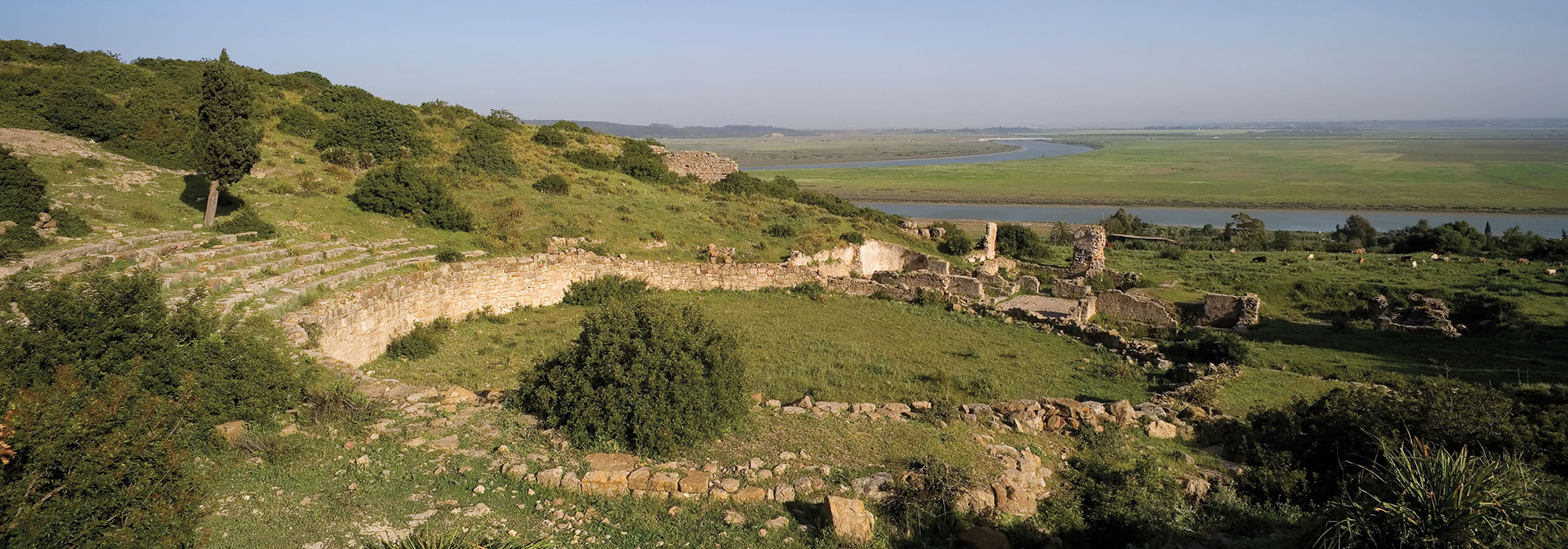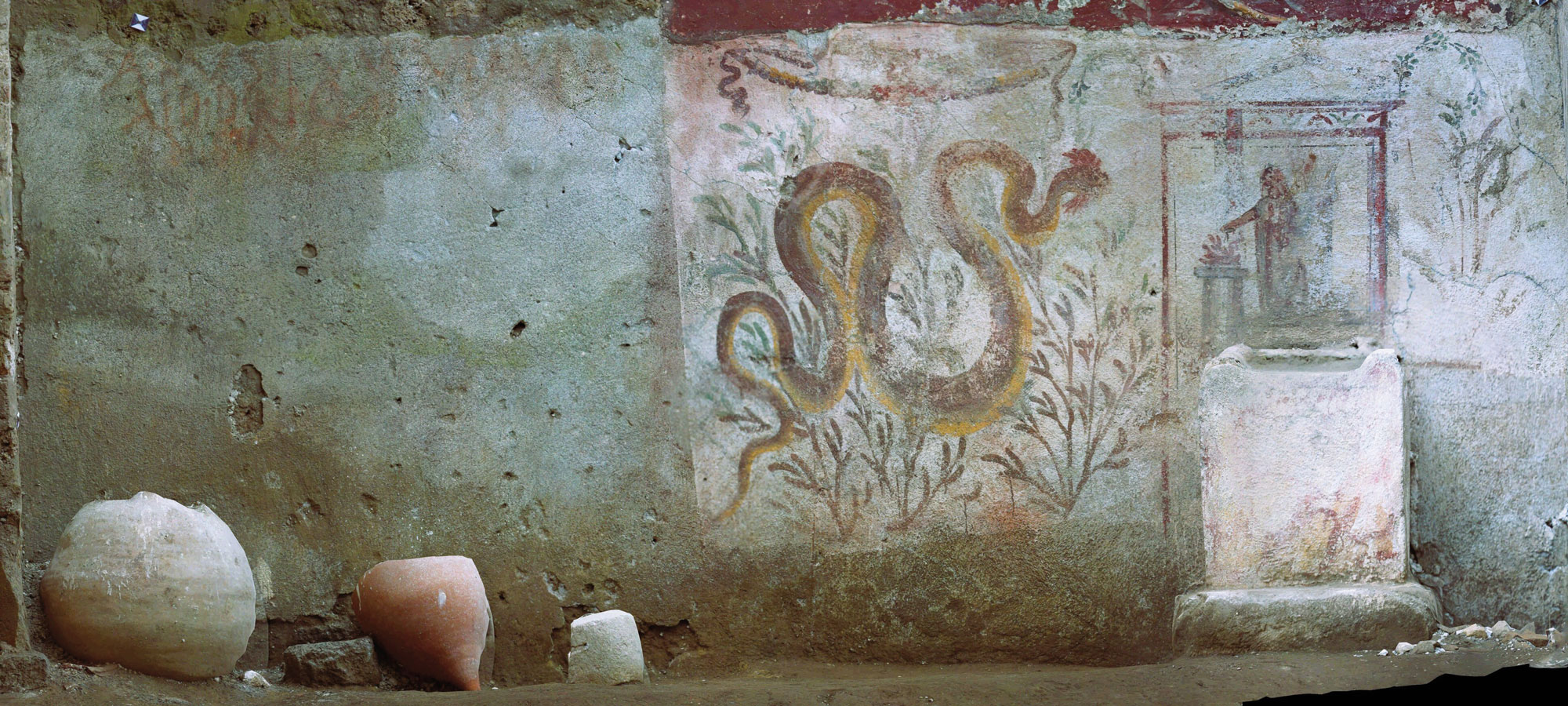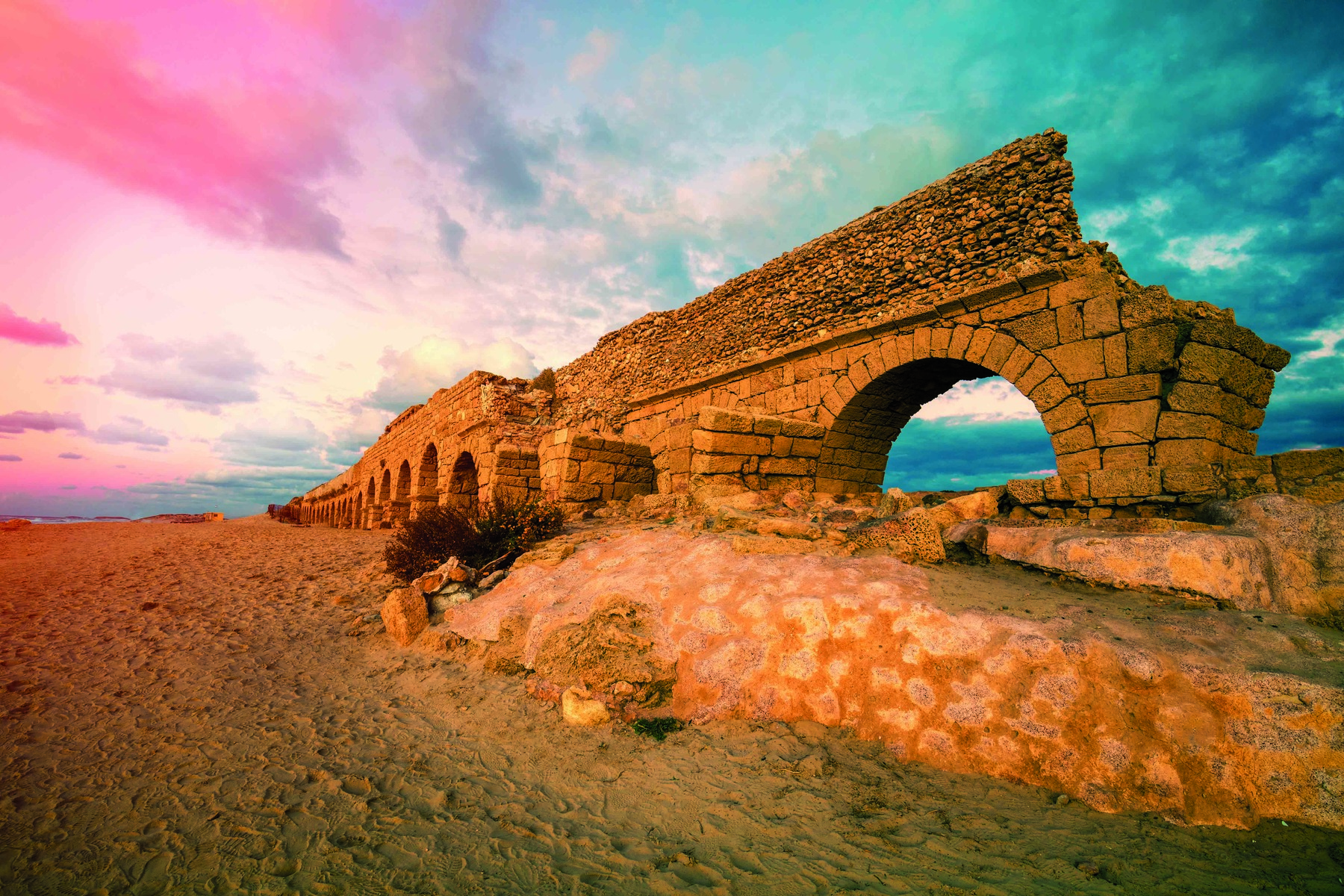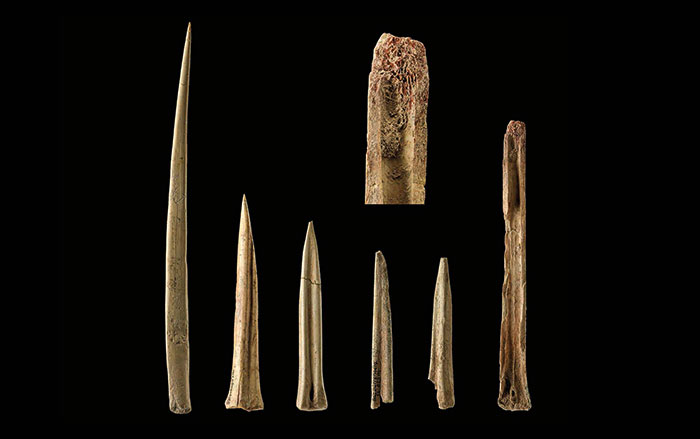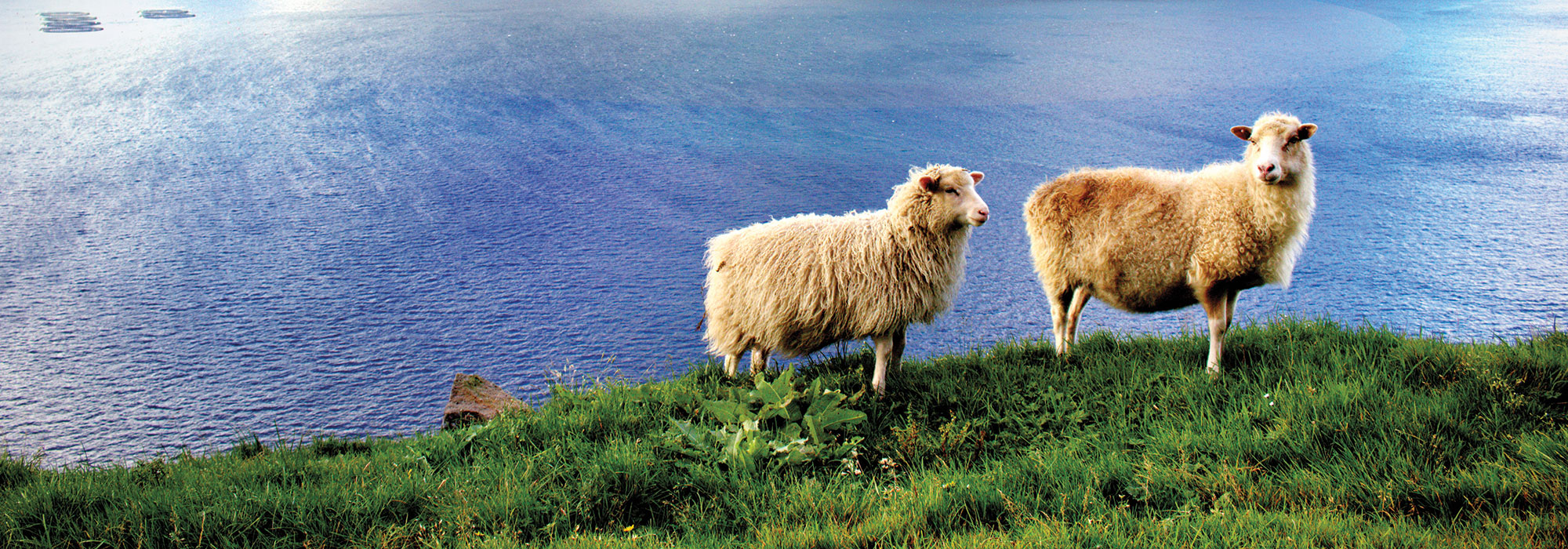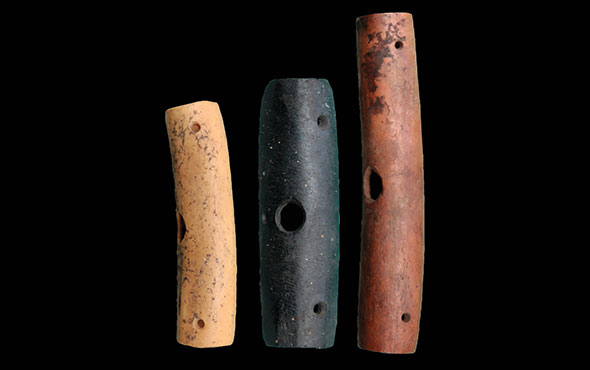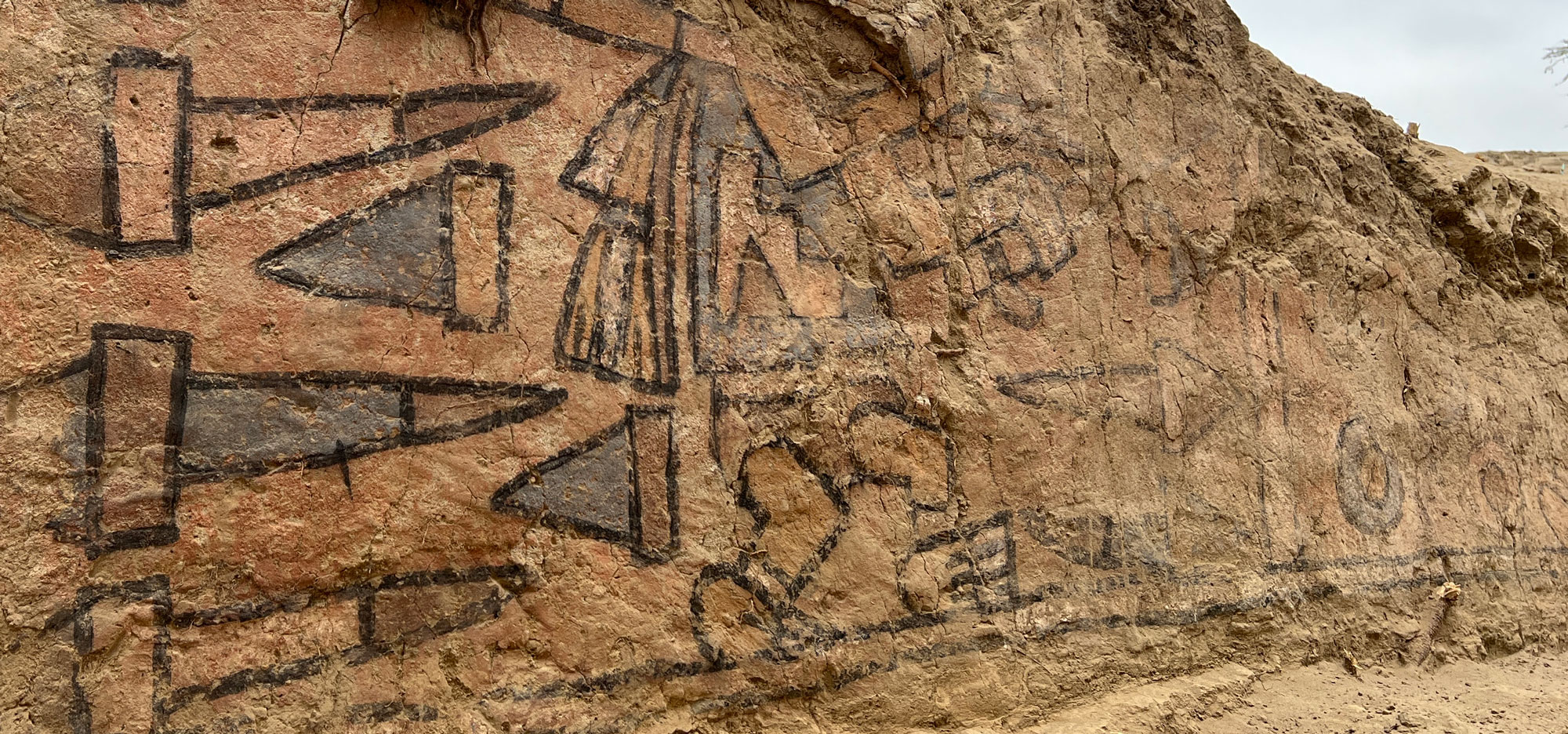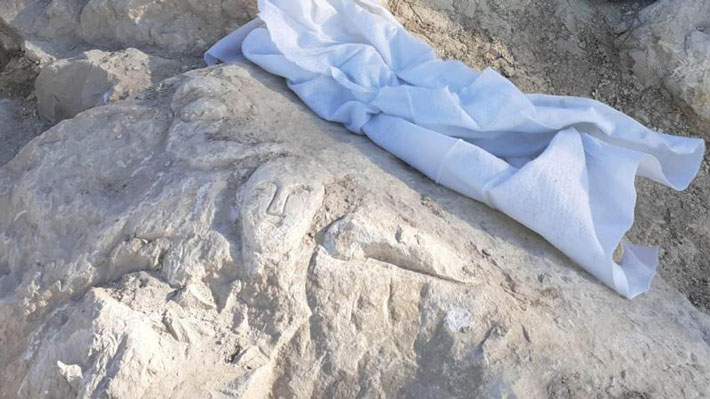
BENIDORM, SPAIN—Live Science reports that carvings of a phallus, human face, and a cornucopia were revealed on a stone at Tossal de La Cala, a hilltop Roman fort located on Spain’s Mediterranean coastline, after heavy rains. Jesús Moratalla of the University of Alicante said that the original carving may have been larger, since a portion of the rock is missing. The images are thought to have been protective good luck talismans. Soldiers at Tossal de La Cala would have been charged with watching the sea for naval threats. For more on Roman Spain, go to "Spain's Silver Boom."


